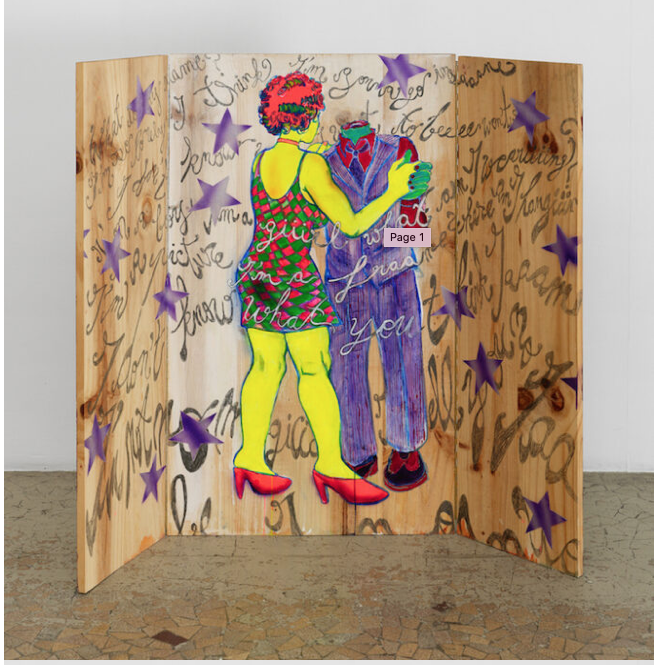ICHTI – BARRAULT
We are delighted to welcome J’adore vous faire rire (I love making you laugh), Neïla Czermak Ichti’s second solo exhibition, featuring a new body of work.
It is often said, and rightly so, that talismans are all about protection. They protect against the forces of evil, ward off the evil eye, and give courage in the face of adversity. For my part, I like to think of talismans as the catalysts of faith. We leave our emotions in them -sadness, anger, love, happiness- and the magical object changes this emotional matter into a very dark substance able to connect us to the world. This substance, sometimes called “trust” or “faith”, but everybody knows it is mainly love. At a time of necessary struggles, talismans tell love stories, which are also our stories, and have always been so.
The word superstition comes from the Latin superstes, which means “survival”, that is to say, in this context, “survival of tradition”. Thus, the forms and practices derided by the mighty who call them superstitions, are actually genuine haunts of ghosts. From this point of view, these traditions are not hackneyed dogmas, but are collective ways of being related to what is around us, whether visible or invisible. Superstitious people easily make friends with ghosts. Their rooms and pockets are full of various talismans, which form a kind of system with the talismans of their friends. In fact this system is a counter-system, an alternative path, an obscure device so that not to be seen by power and make the most precious and most clandestine resource of the world thrive: love. Our talismans look like us, but do not belong to us. They emphasize our emotions while reminding us that we are not alone, and that the worlds we dream of are possible. I do not know exactly why, but I have always felt that the painted or drawn people by Neïla had talismans in their pockets. Even better, their eyes, their gaze were, by nature, deeply talismanic.
Neïla makes her friends cry with laughter. He writes texts, which are both tribute and ways of restoring justice. She is sometimes afraid she has chosen the dark side of the force. And I understand them all the more as I share this fear. Power would have us believe that only light and whiteness are able of spreading good. This is not the case. Let us stop demonizing demons. Most of time, they are only creatures who, like us, hold fast to the idea of multiple worlds. Creatures who dream of other worlds, travel in other worlds, build other worlds. Moreover, is it not significant that the word “demon” is, in French, the anagram of the word world “monde”? In the opinion of society, demons are terrible. And indeed their bodies in daylight are frightening to see. But when it gets dark, you can hear them tell sweet stories, which are nearly always stories of revolt and love. Neïla’s work, in this sense, is somehow deeply demoniac: it takes us into the realm of shadows, as if to show us that this realm is a heart whose pulse carries endlessly the tears of laughter of those we will cherish for ever.
